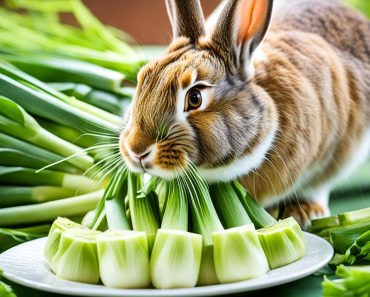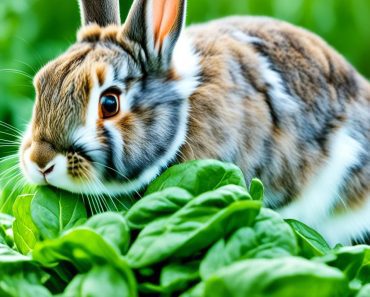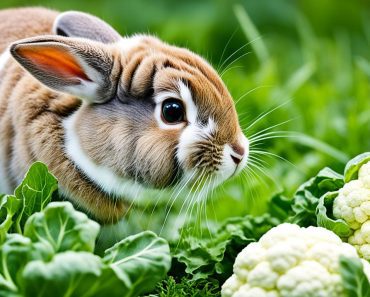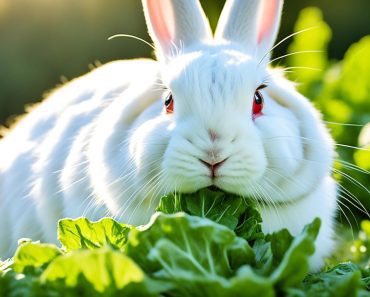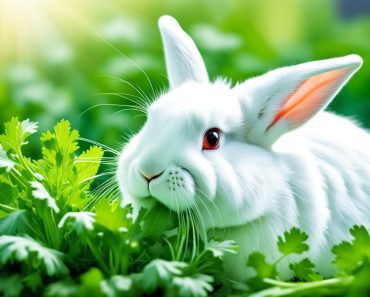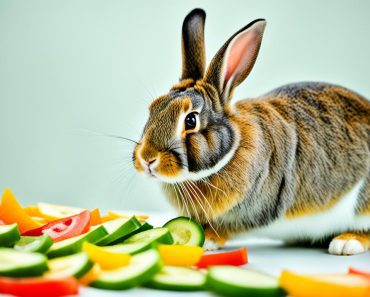As a rabbit enthusiast, I often find myself curious about what foods are safe and nutritious for my furry friends. Recently, I wondered: can rabbits eat green beans? – as they are a common vegetable found in many households. After thorough research and consultation with rabbit experts, I have discovered some fascinating information about the compatibility of green beans and rabbit diets.
Green beans can indeed be a tempting treat for rabbits, but it’s important to understand how they can affect their delicate digestive systems. While rabbits can enjoy green beans in moderation, it’s crucial to be aware that too much can lead to digestive issues such as gas and diarrhea.
It is recommended that vegetables, including green beans, make up only 20% of a rabbit’s diet, with the majority consisting of grass and hay. This core diet provides the necessary fiber and nutrients for their overall health and well-being. Overconsumption of green beans can result in the fermentation of bad bacteria in their digestive system, causing bloating and stomach upset.
When introducing green beans to a rabbit’s diet, it’s essential to do so slowly and in small amounts. This helps to prevent any potential digestive issues and ensures that their core diet of hay, water, and pellets remains their top priority for optimal health.
Can Rabbits Eat Green Beans? Yes, they can, but in moderate portions.
- Rabbits can eat green beans, but only in moderation.
- Vegetables should make up only 20% of a rabbit’s diet, with the majority being grass and hay.
- Too many green beans can lead to gas, diarrhea, and digestive upset.
- Introduce green beans slowly and in small amounts to avoid any negative health effects.
- Always prioritize a rabbit’s core diet of hay, water, and pellets for their overall well-being.
The Rabbit Digestive System
Rabbits have a specialized digestive system that allows them to thrive on a diet of grass and hay. The good bacteria in their gut ferment the fibers of the hay, creating healthy fats that serve as the main energy source for rabbits.
Green beans, however, can be easily fermented by bad bacteria, leading to a shift in pH and digestive upset. This can result in bloating and diarrhea, which can be fatal for rabbits.
It’s important to be cautious when feeding green beans to rabbits with sensitive digestive systems and to prioritize other vegetable treats such as bok choy, carrot tops, or dandelion greens.
The Golden Rule for Feeding Green Beans to Rabbits
When it comes to feeding green beans to rabbits, it’s essential to follow the golden rule. Green beans, like any other vegetable or treat, should be introduced slowly and fed in moderation.
Rabbits can enjoy green beans as a healthy snack, but they should never be a substitute for their core diet of grass and hay. It’s crucial to limit the amount of green beans given to rabbits and to always prioritize their hay, water, and pellets for optimal health.
If both you and your rabbit enjoy green beans, small amounts can be given as an occasional treat. Remember, moderation is key in maintaining your rabbit’s overall well-being.
Now, let’s talk about some other safe vegetables that rabbits can enjoy alongside green beans.
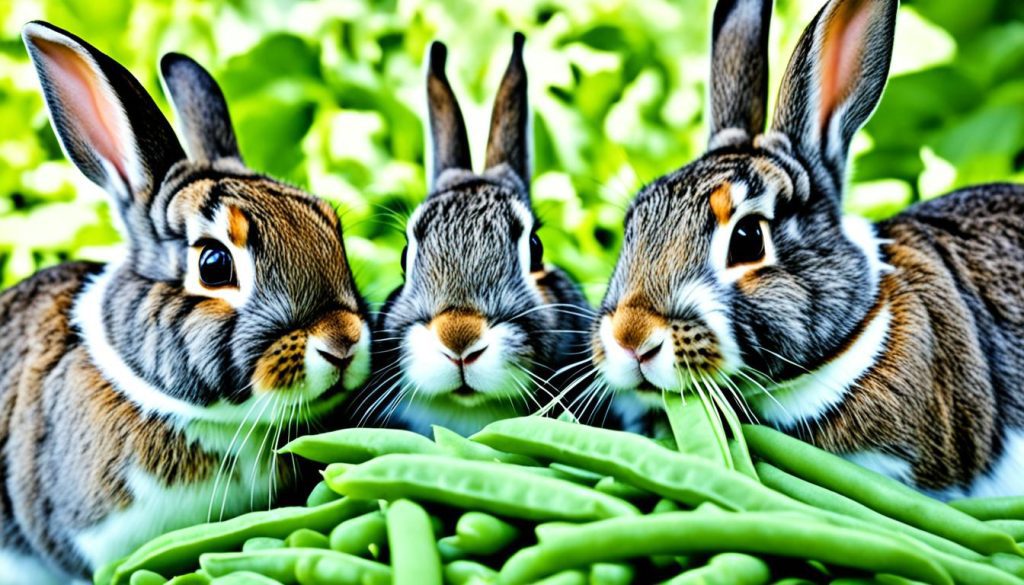
“Green beans are a delicious treat for rabbits, but it’s important to feed them in moderation to maintain a balanced diet.” – Dr. Emma Adams, Rabbit Health Expert
Safe Vegetables for Rabbits to Eat
While green beans should be given in moderation, there are many other vegetables that rabbits can safely enjoy. Leafy green vegetables and herbs are generally safe and nutritious for rabbits.
Some examples of safe vegetables for rabbits include:
- Alfalfa sprouts
- Arugula
- Beet greens
- Bell peppers
- Bok choy
- Broccoli
- Carrots
- Celery
- Dandelion greens
- Lettuce varieties such as romaine, green leaf, and red leaf
These vegetables provide a variety of additional nutrients, textures, and tastes to enrich a rabbit’s diet. They also have increased moisture content, which promotes kidney and bladder health.
Unsafe Vegetables and Foods for Rabbits
While it’s important to know which vegetables are safe for your rabbit, it’s equally crucial to be aware of the foods that should be avoided. Feeding your rabbit the wrong foods can cause digestive issues and potentially harm their health. Here are some foods that are not safe for rabbits:
- Avocados: Avocados contain a substance called persin, which is toxic to rabbits.
- Corn: Corn is high in sugar and starch, which can disrupt a rabbit’s digestive system.
- Legumes: Foods like beans and peas can cause bloating and discomfort for rabbits.
- Iceberg lettuce: Unlike other lettuce varieties, iceberg lettuce has minimal nutritional value and can cause diarrhea in rabbits.
- Onions: Onions contain compounds that can be toxic to rabbits and can damage their red blood cells.
- Potatoes: Potatoes are high in starch and can cause digestive issues for rabbits.
- Rhubarb: Rhubarb contains oxalic acid, which is toxic to rabbits and can lead to kidney damage.
It’s also vital to avoid feeding rabbits wild-grown mushrooms, as they can be toxic and have harmful effects on their neurologic and digestive systems.
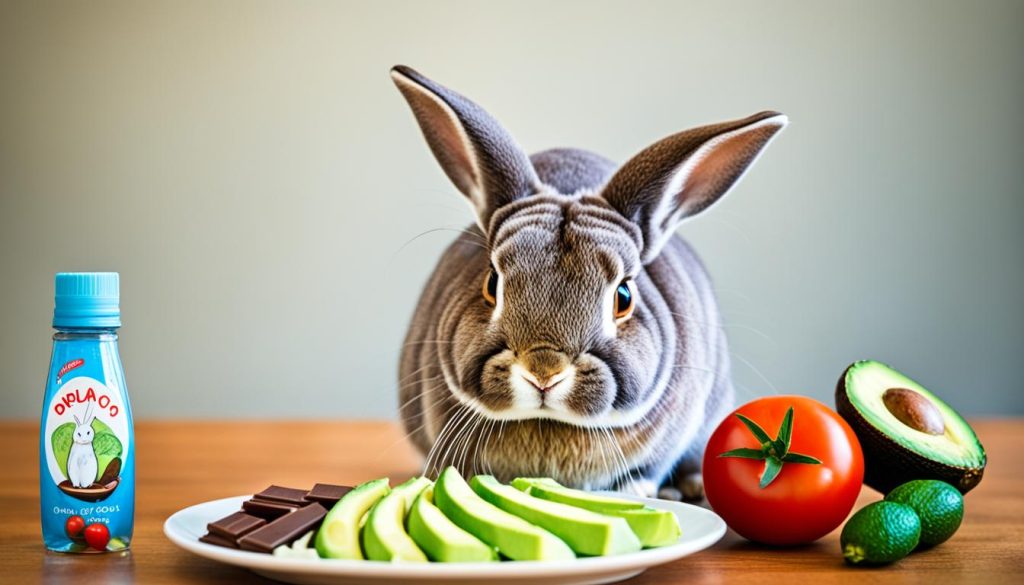
Introducing Fruits and Vegetables to a Rabbit’s Diet
When it comes to integrating fresh foods into your rabbit’s diet, it’s important to introduce them gradually to avoid any digestive issues. Start by offering grass hay for at least two weeks to prepare your rabbit’s digestive system. This will help ensure that their gut is ready to handle new foods.
After the initial period with hay, you can begin introducing fruits and vegetables to your rabbit’s diet. It’s best to start with one type of leafy green at a time, allowing three days between each new addition. This allows you to observe how your rabbit reacts to each new food and make any necessary adjustments.
Remember to serve leafy greens in appropriate amounts based on your rabbit’s weight. A general guideline is 1 cup of packed leafy greens per 2 pounds of body weight. This ensures that your rabbit gets the right balance of nutrients without overloading their system. Always remove any uneaten or excess fruits and vegetables after three to four hours to maintain freshness and prevent spoilage.
Additionally, it’s crucial to provide your rabbit with fresh water at all times. Hydration is essential for their overall health and well-being.
Pro tip: Always consult with a rabbit-savvy veterinarian to ensure that you are introducing the right fruits and vegetables and in the correct amounts for your specific rabbit’s needs.
Benefits of Introducing Fresh Foods to Your Rabbit’s Diet
- Increased variety: Introducing a variety of fruits and vegetables adds diversity to your rabbit’s diet, providing different flavors and textures to keep mealtime interesting.
- Additional nutrients: Fresh produce offers a range of essential vitamins and minerals that can enhance your rabbit’s overall health and support their immune system.
- Added hydration: Fruits and vegetables have a high water content, which helps to keep your rabbit hydrated and promotes healthy kidney and bladder function.
- Environmental enrichment: Offering a variety of foods for your rabbit to explore and forage on can provide mental stimulation and prevent boredom.
Remember, while fresh foods can be a nutritious addition to your rabbit’s diet, they should never replace the core components of their diet, including grass hay and water. Always prioritize their main food sources and use fruits and vegetables as occasional treats and supplements.
Conclusion
After careful consideration, it is clear that green beans can be a tasty and nutritious treat for rabbits. However, it is crucial to feed them in moderation. While some rabbits may enjoy snacking on green beans, their core diet should consist primarily of grass and hay for optimal health.
Feeding excessive amounts of green beans to rabbits can easily lead to digestive upset, causing uncomfortable bloating and diarrhea. To avoid these negative health effects, it is important to introduce green beans slowly and in small amounts. Additionally, always prioritize the provision of fresh water, hay, and pellets to ensure your rabbit’s overall well-being.
While rabbits can eat green beans, it is best to treat them as occasional snacks rather than a staple in their diet. Remember to maintain a balanced and varied diet for your furry friend, incorporating a variety of safe vegetables to provide additional nutrients and enrich their eating experience.

